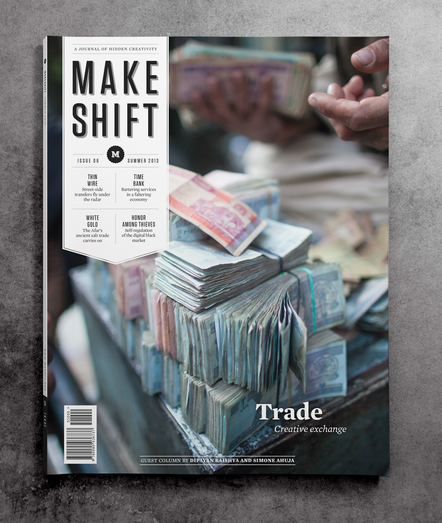From capturing light in a plastic bottle in the slums of the Philippines to tapping into streetlamp wires to charge mobile phones during the revolts in Tahrir Square, creativity can be found in some of the most unlikely places. These are the places where resources are scarce, but ingenuity is in endless supply.
Makeshift is a print and online magazine dedicated to documenting the hidden creativity that takes place all around the globe and featuring the creators, hackers, and entrepreneurs that make it all happen. I had the incredible opportunity of working with Makeshift's crazy talented network of multimedia journalists for this quarter's issue of "Resistance"--an edgy theme that puts the spotlight on creative opposition in informal economies around the world.
I personally interviewed Elizabeth Suda, founder and CEO of fair trade company Article 22, and wrote about their peaceBOMB project. In Laos, more than 250 million bombs were dropped from 1964 to 1973, making it the most heavily bombed country per capita in history. Article 22 works with artisans in the Naphia village of Xieng Khouang province to turn the refuse of unexploded bombs in the area into a thing of beauty and self-expression: bracelets. Combining human ingenuity and aluminium war scrap metal, peaceBOMB is just one example of how people around the world are turning something negative and destructive into something positive and productive.
This issue of Makeshift introduces readers to hackers of technology and authority: weapon makers in Libya, renegade electricians in South Africa, and creators of homemade minesweepers in Afghanistan. You'll be amazed by the ingenuity that people are capable of under a dominating authority! Take a sneak peek of the issue online, on your tablet, or grab the copy in print!

